Speaker Summer School 2025

Dr Rena Beatrice Alcalay, Technical University of Munich
Rena Beatrice Alcalay (formerly Goldstein) is a postdoctoral research associate in the Department of Science, Technology, and Society at the Technical University of Munich’s School of Social Sciences and Technology. She is a member of the Philosophy of Open Science research group, funded by the European Research Council, which investigates the conditions necessary for fostering fair and equitable research practices across diverse contexts. Her expertise lies in social and applied epistemology, with a focus on open science, the philosophy of life, and the biomedical sciences.
Her research also includes exegetical studies of Ludwig Wittgenstein’s works—particularly Philosophical Investigations and On Certainty—with a special emphasis on questions emerging from hinge epistemology and social psychology. Her primary interest is in clarifying the nature and potential normativity of hinges, shedding light on the phenomenon of groundless prejudices and stereotypes, and exploring their implications for medicine and education.
In-depths lecture: Scientific Attitudes Toward Risk Variability
Abstract >
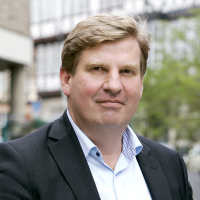
Professor Sören Auer, TIB – Leibniz Information Centre for Science and Technology and University Library
Sören Auer is Professor of Data Science and Digital Libraries at Leibniz Universität Hannover and Director of the TIB. He has made important contributions to semantic technologies, knowledge engineering and information systems. He is the author (resp. co-author) of over 200 peer-reviewed scientific publications. He has received several awards, including an ERC Consolidator Grant from the European Research Council, a SWSA ten-year award, the ESWC 7-year Best Paper Award, and the OpenCourseware Innovation Award. He is co-founder of high potential research and community projects such as the Wikipedia semantification project DBpedia, the Open Research Knowledge Graph ORKG.org and the innovative technology start-up eccenca.com.
Homepage: https://tib.eu/auer
Keynote: Neuro-symbolic AI for Open Science
Abstract >
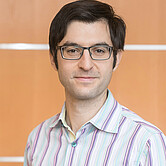
Dr Evgeny Bobrov, Charité
Dr Evgeny Bobrov is team lead Open Data and Research Data Management at the QUEST Center of the Berlin Institute of Health at Charité. He leads efforts in monitoring data sharing and reuse practices and consults researchers with a focus on the sharing of personal data.
In-depths lecture: How to share personal data
Abstract >
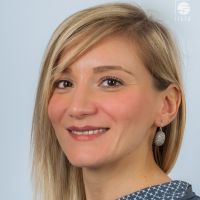
Dr Dilek Fraisl, International Institute for Applied Systems Analysis (IIASA)
Dr Dilek Fraisl is a Senior Research Scholar in the Novel Data Ecosystems for Sustainability Research Group at the International Institute for Applied Systems Analysis (IIASA). She also serves as the Managing Director of the Citizen Science Global Partnership. She holds a PhD in Sustainability Transitions, with research interests spanning sustainable development, data and statistics, Earth Observation, and citizen science as theory, practice, and evidence-base for policy development. She has worked in the areas of data governance and data management, including research on citizen science data quality. Dilek has led and contributed to various citizen science projects focused on marine litter, land use land cover, and other critical environmental issues, funded by the European Commission, UN agencies, and other global donors. Additionally, she has contributed to key UN reports, such as “Measuring Progress: Environment and the SDGs” by the United Nations Environment Program (UNEP). Dilek has several board and expert group memberships with scientific communities, the UN, and other global initiatives, including the UN Framework Convention on Climate Change (UNFCCC) Resilience Frontiers, the UN Statistics Division (UNSD) Citizen Data Expert Group and Collaborative, the UN Environment Program (UNEP) Science Policy Business Forum, UN- Habitat Quality of Life Program, and the Group on Earth Observations (GEO), among others. She is also actively involved in organizing committees and scientific advisory boards for several European and global conferences, such as the UN World Data Forum.
In-depths lecture: Collaborative Power of AI and Citizen Science for Sustainable Development
Abstract >
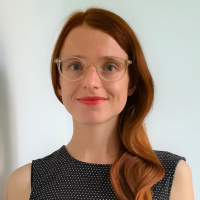
Dr Katrin Frisch, Ombuds Committee for Research Integrity in Germany
Dr Katrin Frisch has been working as a researcher at the Ombuds Committee for Research Integrity in Germany since May 2020, specifically at the project "Discussion Hubs to Foster Research Integrity", with a focus on research data and, since 2023, artificial intelligence. Between March 2023 and March 2024, she also worked as a research integrity advisor at the OWID office. The aim of the Discussion Hubs project is to create practical guidelines supplementary to the DFG Code of Conduct "Guidelines for Safeguarding Good Research Practice" as well as producing novel research on research integrity. Recent publications include the FAQ Artificial Intelligence and Research Integrity, a study on authorship and data use conflicts as well as a monograph on fairness in science (both only available in German). You can find an overview of the project and related output here.
Keynote: Maintaining Integrity when Using AI in Your Research
Abstract >

Dr Michael Gastegger, Microsoft Research AI
Michael Gastegger is currently a senior researcher in the Microsoft Research AI for science project. His research focuses on modelling distributions of biomolecules with machine learning. Before joining Microsoft AI for Science, he was a postdoc in the Machine Learning Group at TU Berlin. There, he was working on the development and application of machine learning methods for computational as part of BASLEARN, the Berlin based joint lab of BASF and TU Berlin for machine learning. He received his Ph.D. in Chemistry from the University of Vienna in Austria in 2017.
In-depths lecture: Machine learning for Sciences: Computational chemistry and biology
Abstract >
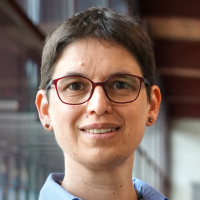
Anja Herwig, Humboldt-Universität zu Berlin
Anja Herwig is Data Steward at the University Library of Humboldt-Universität zu Berlin since 2018. In addition to this area of responsibility, the mathematician is the subject librarian for mathematics and computer science and deputy site manager of the Science Branch Library.
Hands-On Session: Reproducible research with Lego
Abstract >
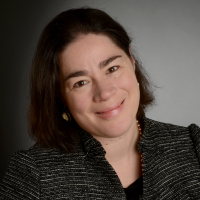
Dr Angela Holzer, German Research Foundation
Dr Angela Holzer is a Programme Director at the German Research Foundation. She leads a team that is responsible for the funding of Scholarly Publications as well as the strategy on Open Access and Open Science.
Keynote: Is Open Science still relevant?
Abstract >

Philipp Jordan, CityLAB Berlin
Philipp Jordan holds an M.Sc. in Remote Sensing, Geoinformation, and Visualization, as well as a B.Sc. in Geoecology. In his roles at the Alfred Wegener Institute and the Technical University of Berlin, he worked on spatiotemporal environmental analyses with a focus on climate change and urban heat development. In this context, he developed data-analytical methods for evaluating multidimensional geodata. Today, he works for the CityLab Berlin of the Technologiestiftung Berlin as a project and data manager, where he is committed to making urban data infrastructures transparent, accessible, and impactful.
In-depths lecture: From Data to Tangible Insights: Exploring Open Data in Berlin
Abstract >
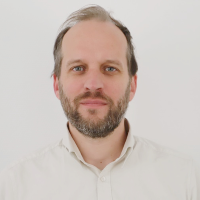
Dr Dietmar Kammerer, Weizenbaum Institute
Dr Dietmar Kammerer joined the Weizenbaum Institute in November 2022 as a research data officer. He is responsible for the development and operation of the Open Acces Repository "Weizenbaum Library" as well as for all aspects of reserach data management.
Dietmar studied Literature, Politics and Philosophy in Konstanz, England and Berlin. He received his doctorate in 2008 at the Department of Cultural History and Theory, Humboldt University of Berlin with a dissertation on images of video surveillance. From 2011, he worked as a research associate at the Institute for Media Studies at the University of Marburg with a special focus on film theory and media history. He developed and operated the Open Access Repository for Media Studies and has served as technical and administrative project coordinator in the National Research Data Infrastructure.
His research interests include surveillance, privacy, data protection, Open Science, film and media theory.
https://www.weizenbaum-institut.de/en/portrait/p/dietmar-kammerer/
Discussion: Openness in your own research practice
Abstract >
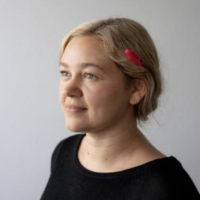
Anna Meide, CityLAB Berlin
Anna is part of the Public Data team at CityLab Berlin. After working as a humanities scholar and cultural officer, she moved to Potsdam in 2018 to study Interface Design. Within the interdisciplinary program, she
explored the intersections of programming, graphic design, and product development. As an alumna of the University of Applied Sciences Potsdam, she has been contributing to the CityLAB and the Open Data Informationsstelle Berlin since 2023, focusing on interactive data visualizations and the physicalization of data through tangible, sensory experiences.
In-depths lecture: From Data to Tangible Insights: Exploring Open Data in Berlin
Abstract >

Dr Eike Middell, BIFOLD & Technische Universität Berlin
Eike Middell is a physicist and scientific software developer with experience in neutrino telescopes, neuroimaging, and spectroscopic sensing. He has worked on signal processing for functional near-infrared spectroscopy (fNIRS) in Parkinson’s research, led the software development for a commercial, wearable fNIRS system, and contributed to projects in financial forecasting and industrial gas-leak detection. At the Intelligent Biomedical Sensing (IBS) Lab he works on an open-source toolbox for advanced fNIRS/DOT signal analysis using machine learning and multimodal biosignals.
In-depths lecture: Lowering Barriers to Open Research: Cedalion as an Example from Neuroimaging
Abstract >

Luis Oala, Fraunhofer HHI & Brickroad
Luis works on composable systems for measuring, optimizing and exchanging data states across the entire data generating process in machine learning. In regular intervals, he shares his ideas through computer code and longer texts spanning topics such as data optimization [1, 2, 3, 4, 5], ML data formats [1, 2, 3] or measurement tools for ML systems [1, 2, 3, 4, 5]. He also enjoys promoting opportunities for community. He helped initiate machine learning venues such as Data-Centric Machine Learning Research (DMLR) and AI for Good and co-chaired conferences such as ICLR, the DMLR workshop series or ML4H. He is Co-Founder and Chief of AI and Data at Brickroad data marketplace and a final-year PhD research scientist at the Department of Artificial Intelligence of Wojciech Samek at Fraunhofer HHI in Berlin, Germany.
In-depths lecture: A Fever Dream of Machine Learning Framework Composability: Croissant and Beyond
Abstract >
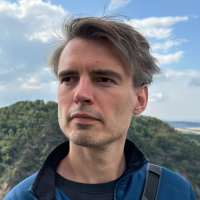
Professor Holger Pirk, Imperial College London
Holger is an Associate Professor in the Large-Scale Data and Systems group at Imperial College London. He is interested in all things data: analytics, transactions, systems, algorithms, data structures, processing models and everything in between. While some of his work targets "traditional" relational databases, the objective is to broaden the applicability of data management techniques. To this end, Holger studies “Composable Database Systems”: systems that are extensible to heterogeneous workloads, data models and hardware. This naturally leads to research at the intersection of data management, compilers and computer architecture, targeting applications like Generative Modeling, Graph Processing as well as “classic” Data Analytics. Before joining Imperial, he was a Postdoc in the Database group at MIT CSAIL, a PhD student in the Database Architectures group at CWI in Amsterdam and an undergraduate student in computer science at the Humboldt-Universität of Berlin. Holger knows how to speak and write, as evidenced, respectively, by a CIDR Gong Show Award and a VLDB Best Paper Award.
In-depths lecture: SIGMOD Availability and Reproducibility: Turning Research Nightmares into Smooth Sailing
Abstract >
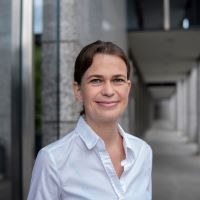
Professor Sonja Schimmler, Technische Universität Berlin & Fraunhofer FOKUS
Sonja Schimmler is a visiting professor for research data infrastructure at Technische Universität Berlin. At the same time, she is research group lead at Fraunhofer FOKUS.
She is involved in various third-party funded projects. She is engaged in the NFDI initiative (National Research Data Infrastructure), as spokesperson for the NFDI4DataScience consortium and the Common Infrastructures section, and as co-spokesperson of the Base4NFDI initiative and the NFDI4Cat consortium. She is also active at the Weizenbaum Institute, as head of the research group »Digitalization and Opening up of Science«.
Her research focuses on the digitalization and opening up of science. She puts a special emphasis on research data infrastructures. She studied computer science at the Technical University of Munich and at the Georgia Institute of Technology (USA) and received her doctorate at the University of the Federal Armed Forces in Munich.
Lecture: Data Infrastructures and Data Competencies: The Key for a Cooperative Data Culture
Abstract >
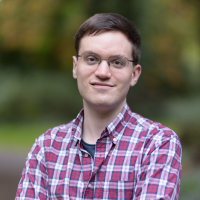
Henrik Schönemann, Humboldt-Universität zu Berlin
Henrik Schönemann is studying history with a focus on Digital History and Digital Humanities at HU Berlin. There he is also working at the Interdisciplinary Center for Digitality and Digital Methods. In January 2025 he initiated the project Safeguarding Research & Culture to preserve endanger research data - including U.S. climate datasets and historical sources - and keep it accessible via distributed storage using the BitTorrent protocol. As spokesperson & information activist, he advocates for open knowledge, resilient (research) infrastructure as well as digital sovereignty.
Hands-on session: Leveraging peer-to-peer technology to keep research data safe and accessible.
Abstract >
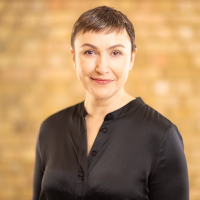
Professor Elena Simperl, King’s College London
Elena Simperl is a professor of computer science at King’s College London in the United Kingdom. She is also a Fellow of the British Computer Society and of Royal Society of Arts, as well as a Hans Fischer Senior Fellow.
She has a doctoral degree in computer science (Dr. rer. nat.) from the Free University of Berlin and a diploma in computer science (Dipl. Inform.) from the Technical University of Munich. Before joining King’s in 2020, she held positions at Southampton, as well as in Germany and Austria. http://elenasimperl.eu
Keynote: Open data infrastructure in the age of generative AI
Abstract >
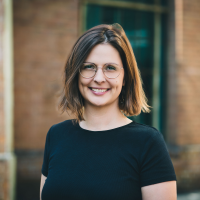
Dr Britta Steinke, Technische Universität Berlin
Dr Britta Steinke leads the Research Data Management Service Center (SZF) at TU Berlin. She advises researchers on all aspects of research data management, from planning and documentation to archiving and sharing. Her work focuses on practical training formats, sustainable infrastructure, and the development of institutional strategies.
Hands-on session: FAIR Data in Practice: Finding and Reusing Research Data